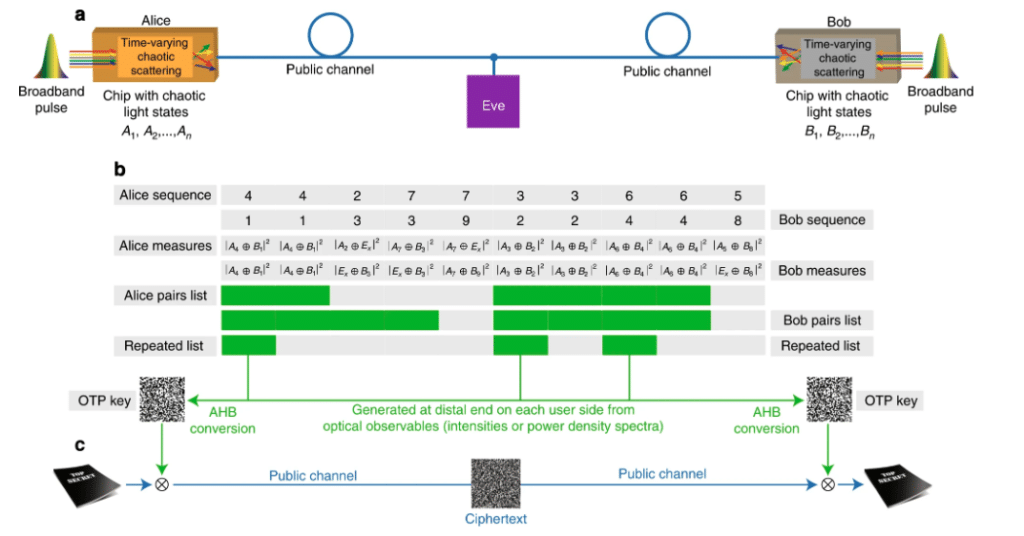Scientists Develop World’s First ‘Unhackable’ Encryption System

Makers of Titanic claimed that it is ‘unsinkable’ and we know how it went down in history. Now, researchers from the University of St Andrews have claimed to have developed an ‘unhackable’ encryption system that stores data in the form of light.
The chip designed by the researchers generates one-time-only key when data is sent through it. The data is stored as light and passed through a specially designed chip that bends and refracts the light to scramble the information.
The trick behind the tech is that the bending and refracting of light is unique every time as it depends upon the data being sent through the chip. It would be safe to say that the chip is a physical realization of the OTP mechanism which is popularly used today to authenticate several services.
A paper published in the Nature journal titled “Perfect secrecy cryptography via mixing of chaotic waves in irreversible time-varying silicon chips” says that the new technology exploits correlated chaotic wavepackets, that are mixed in inexpensive and CMOS compatible silicon chips.
The specially engineered chips can deliver 0.1 Tbit of different keys for every mm of the length of the input channel.

He adds, “If you scrunched up the cups when speaking it would mask the sound, but each time it would be scrunched differently so it could never be hacked. This new technique is absolutely unbreakable.”
The “perfect secrecy cryptography” system’s security is evaluated on the basis of the Kerckhoff principle. To prevent a hacker from getting any information on the key being exchanged by the user, the technology uses the second law of thermodynamics and the exponential sensitivity of chaos.
This research proposes to solve the global issue of cybersecurity and if implemented properly could render crypto-hackers jobless. We hope to see the chip being deployed in the future to secure communication channels.
You can read more about the research in the published research paper on Nature.com.
Also Read: Beware! This Popular Chat App Is An Alleged Spy Tool For The UAE






